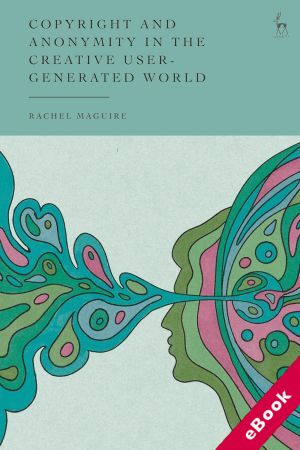
The device(s) you use to access the eBook content must be authorized with an Adobe ID before you download the product otherwise it will fail to register correctly.
For further information see https://www.wildy.com/ebook-formats
Once the order is confirmed an automated e-mail will be sent to you to allow you to download the eBook.
All eBooks are supplied firm sale and cannot be returned. If you believe there is a fault with your eBook then contact us on ebooks@wildy.com and we will help in resolving the issue. This does not affect your statutory rights.
This book explores the relationship between copyright law, online anonymity, and creative user-generated content (CUGC).
Presenting original empirical findings, the book evaluates the co-existence of copyright law and normative systems regulating a CUGC landscape made up of artists, photographers, and writers, and makes novel recommendations for copyright reform. It takes a multi-jurisdictional approach across Anglo-American and EU legal systems, using the UK, USA, and Germany as representative jurisdictions for legal analysis. Qualitative findings are drawn from creators and communities on Reddit and 4chan. Copyright subsists in much CUGC, but pervasive anonymity makes it difficult for the law to regulate it effectively. Simultaneously, anonymity offers creative benefits in a way that highlights flaws in traditional justifications of copyright. Comparisons between community norms and copyright law identify practical differences but also fundamental compatibilities in terms of ownership expectations. However, the simultaneous existence of legal and normative enforcement mechanisms complicates matters for creators and potential users, with negative implications for creativity and copyright law.
While existing reform efforts have made suggestions to create a UGC exception, these overlook and undermine the role of CUGC creators as copyright holders. This can be remedied by the inclusion of supplementary provisions. This valuable resource for researchers and students provides a distinct perspective in framing CUGC creators as copyright holders, examining online anonymity as a pivotal factor influencing regulation.